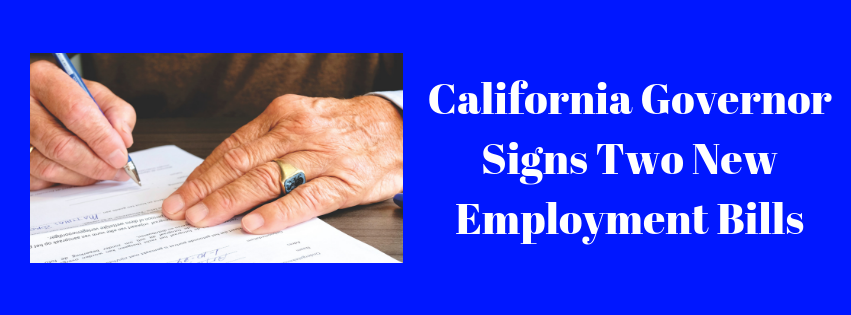Decent humanity had a win when California’s Governor Jerry Brown signed two new employment bills into state law on July 9th. The two bills, scheduled to take effect January 1st of next year, are simple but effective in nature – one addressing workplace sexual harassment, and the other Paid Family Leave regulations – while both were unanimously voted through by bipartisan Legislature.
Curious about the changes? Read on…
Bill to Alter Paid Family Leave Regulations
After the previously required seven-day waiting period before receiving Paid Family Leave (PFL) benefits was removed from state law altogether at the start of this year, one of the bills signed by Governor Brown, AB 2587, was more of a clarifying update to existing legislation.
Back when there was a seven-day waiting period, if employers demanded their employees use up their vacation time before receiving PFL benefits, that waiting period could simultaneously count towards their earned time off, making it so that an employee would only have to wait two weeks instead of three to receive their benefits.
Now that the waiting period no longer exists, AB 2587 merely removes the law’s reference of it counting towards an employee’s vacation time – the vacation law itself remaining unchanged.
Sexual Harassment Protection Bill for Victims and Employers
Coded as AB 2770, this bill is a major milestone towards protecting victims of sexual harassment, while helping to prevent it from happening again to others in the future.
An old problem when it came to sexual harassment in the workplace, if a victim ever did have the courage to speak up about it, a common response from the harasser was to simply sue the victim or employer for defamation – often putting the employer in a tough spot as it’s their job to protect their employees from said harassment, but understandably may feel hesitant to do so for fear of legal retaliation from the accused.
Now, come the first of 2019, employees accused of sexual harassment are not only forbidden to file defamation suits against a victim or employer until after an official investigation has cleared them of all charges, but if the accused is found guilty of sexual harassment, the employer also has the right to pass that information on to any other businesses who might be looking to hire the harasser, should he/she quit or be fired after the scandal.
Full of common-sense protections for victims and employers alike, it’s easy to see why both bills passed with flying colors, adding yet another piece of successful Californian legislature this year.
